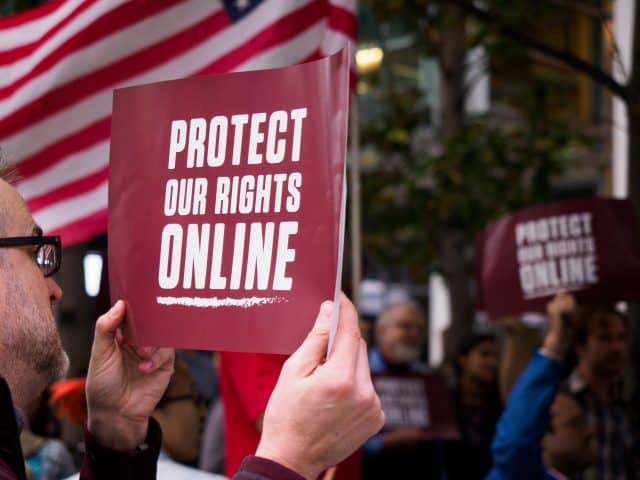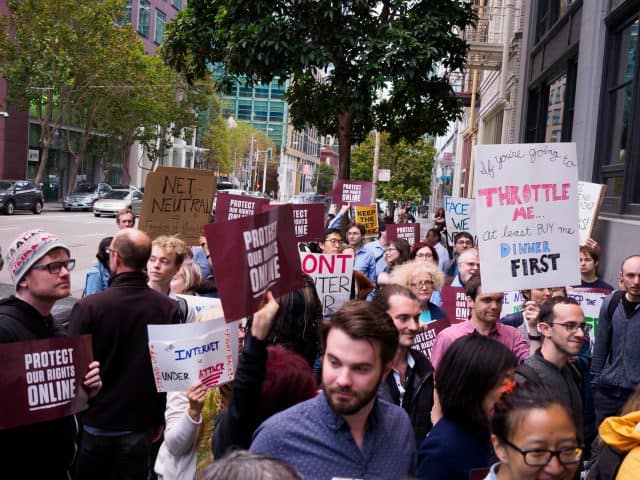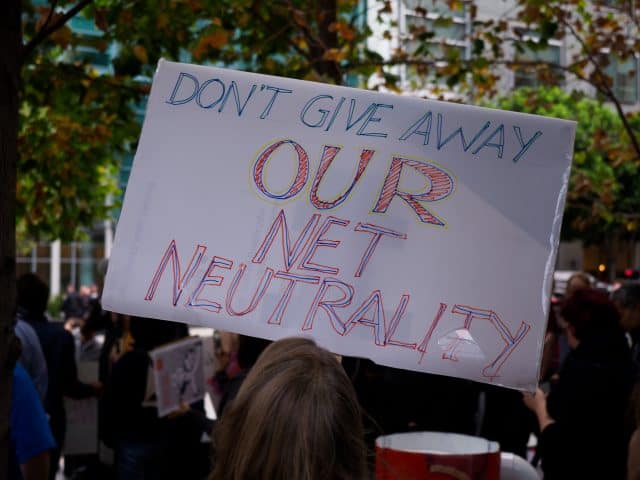The internet as you know it is under attack. And it all comes down to net neutrality.
You may have heard the term ‘net neutrality’ in passing from news reports, Saturday Night Live sketches or even John Oliver’s Last Week Tonight segment on the topic in 2014. But what is net neutrality and why should you care about it?
Existing net neutrality rules
At its core, net neutrality is a principle which requires Internet Service Providers (ISPs) to treat all data on the internet in the same way. In 2015 the Federal Communications Commission (FCC) put in place an Open Internet Order which currently prevents ISPs from charging consumers different rates based upon the type of website or content that they want to view. These net neutrality rules also mean that ISPs cannot charge internet users different rates based upon the type of platforms, applications, or methods of communication through which they view online content.
The bottom line? Net neutrality prevents ISPs from purposefully blocking, slowing down or charging more money for particular websites, content and online services. For the past two years, these net neutrality rules have enabled online start-ups to compete with big businesses as well as permitting individual users to enjoy a wide range of online content at their leisure.

OLYMPUS DIGITAL CAMERA, Image Sourced from Wikimedia, Attribution : Credo Action
Change is coming
Here’s the problem; on November 21st, 2017, the FCC announced its plans to vote on rolling back the current US legislation on net neutrality. The response has been outrage from individual internet users, small businesses and campaign groups such as the Electronic Frontier Foundation (EFF). As one EFF representative highlighted in their Congress, Don’t Sell The Internet Out call to action;
“The FCC’s 2015 Open Internet Order was a huge victory for internet users. Thanks to the millions of us who spoke up for a free and open internet, we won essential net neutrality protections…Now those protections could disappear, as FCC Chairman Ajit Pai is considering reversing the Open Internet Order and giving major telecommunications companies an unprecedented level of control over how we use the Internet…Please tell your members of Congress to oppose efforts to roll back net neutrality protections”.

OLYMPUS DIGITAL CAMERA, Image Sourced from Wikimedia, Attribution : Credo Action
Life without net neutrality
If this vote goes ahead and net neutrality rules are repealed then ISPs would be able to charge both individual consumers and online businesses for access to the internet. In this manner, large telecommunications corporations such as Comcast and Verizon would be able to charge higher monthly fees for internet access as well as charging websites for access to higher speed qualities.
The end result would mean that even if you paid a more expensive monthly fee for high speed internet, the loading times of certain websites could still be significantly lower if the site in question did not have a deal with your ISP. For example, if your ISP had a partnership with Netflix then they could slow down the loading times of sites such as Amazon Video in order to make their own TV and movie services more appealing. These strong-arm tactics could also be used to dramatically reduce the page loading times of free streaming websites or any other services which your ISP does not want you to see.
This type of global censorship could mean the end of a free and open internet. Whether you enjoy watching porn and live cam shows, playing online video games, streaming music, purchasing from certain e-commerce sites or simply using alternative search engines, everything that you do online would be at the mercy (and ultimate approval) of your ISP. Can you imagine what that would be like?

OLYMPUS DIGITAL CAMERA, Image Sourced from Wikimedia, Attribution : Credo Action
What you can do
In today’s technologically advanced society, net neutrality is a crucial issue. Without these vital safeguards, small online businesses risk being ‘bought out’ of the market by more influential corporations. What’s more, individual users could face higher rates simply for access to services that you already use. Where is the justice in that?
Fortunately there is something you can do; voice your concerns. The Electronic Frontier Federation has created a webpage where you can complete and send an email form to local representatives urging them to protect the existing 2015 Open Internet Order. Act now or regret it later!

